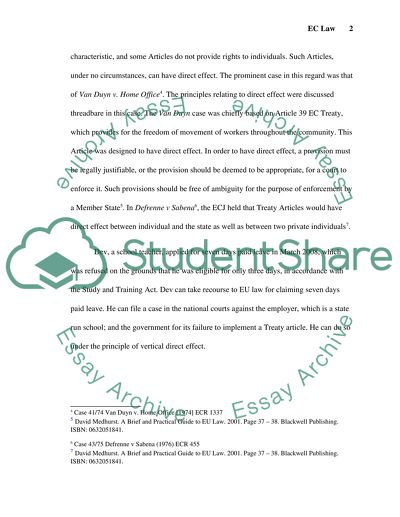Cite this document
(“Reliance on EC Law Essay Example | Topics and Well Written Essays - 1000 words”, n.d.)
Reliance on EC Law Essay Example | Topics and Well Written Essays - 1000 words. Retrieved from https://studentshare.org/miscellaneous/1546608-reliance-on-ec-law
Reliance on EC Law Essay Example | Topics and Well Written Essays - 1000 words. Retrieved from https://studentshare.org/miscellaneous/1546608-reliance-on-ec-law
(Reliance on EC Law Essay Example | Topics and Well Written Essays - 1000 Words)
Reliance on EC Law Essay Example | Topics and Well Written Essays - 1000 Words. https://studentshare.org/miscellaneous/1546608-reliance-on-ec-law.
Reliance on EC Law Essay Example | Topics and Well Written Essays - 1000 Words. https://studentshare.org/miscellaneous/1546608-reliance-on-ec-law.
“Reliance on EC Law Essay Example | Topics and Well Written Essays - 1000 Words”, n.d. https://studentshare.org/miscellaneous/1546608-reliance-on-ec-law.


